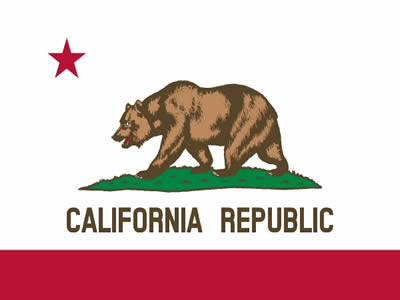There is a rich history of legal gambling in the Golden State. Nicknamed because of the famed Gold Rush of 1849, California has since then been known to aggressively promote physical poker rooms. Way back when, if a miner discovered gold, he often times went straight to the nearest saloon to enjoy some Faro or poker. More than a few ran into unscrupulous and downright dastardly card cheats, as gambling was an entirely unregulated industry at that time. The last couple of years has seen California’s name mentioned as one of the leading candidates to become state number four in the new state regulated online gambling industry. But some of the safety concerns from the Gold Rush days have resurfaced, if in very different forms.
In 1849, you could gamble if you were physically big enough to hold your own in a raucous and bawdy bar, dance hall or saloon, and you had money on you. Today opponents of legal betting online in California, and elsewhere in the United States, are concerned that age verification processes will be thwarted, and children will become addicted to Internet gambling. However, to be fair to the other side of the table, legal Internet gambling has been an established industry in the UK and other parts of the world, and those places have not had substantial issues with addiction or problems with minors accessing the virtual gambling options.
Currently Nevada, Delaware and New Jersey allow you to shuffle up and deal online, with those last two states also offering cyber casino gambling in the form of legal blackjack, roulette, craps and other Internet table games. The combined population for those three states is 12.54 million. California is the most populous US state at 38 million. And while people are well aware of Nevada’s global tag as a worldwide gambling mecca, California’s history is richer in that regard. The above-mentioned Gold Rush actually helped create the foundation for the city we know as Las Vegas, and the slot machine was invented in San Francisco, California long before Las Vegas was ever a reality.
And as far as infrastructure, California is in a great position to leverage its physical poker room operation. California tribal casinos have world-class poker rooms which also offer other forms of gambling. There are also established and historical physical poker rooms in California, more than any other state in the US. Commerce Casino is a Native American run operation, boasting the world’s largest poker room with over 200 tables. As is already the case in Nevada, Delaware and New Jersey, California can simply funnel its Internet gambling operations through physical casinos to guard against cannibalization (which has already proven a non-issue in those other three states where gambling online has been legalized).
And people like Eric Sprague, the co-founder of FlopTurnRiver.com, stated that because of the huge player pool size in California, it would not experience “liquidity problems that are faced by smaller states” like New Jersey, Delaware and Nevada. The two current bills in place in California, AB-2291 and SB-1366, hoping to legalize online poker in that state were introduced on February 21 of this year. Both of those bills would put substantial revenue in place in the form of licensing fees and taxes, which the cash poor state of California desperately needs. Using New Jersey’s $40 million per year estimate for Internet poker revenue generation, and accounting for California’s size, that could mean as much as $160 to $180 million in much-needed funds for the state. It is no longer a matter of “if” for legal online poker for California for several reasons; we are simply waiting to uncover the “when”.

